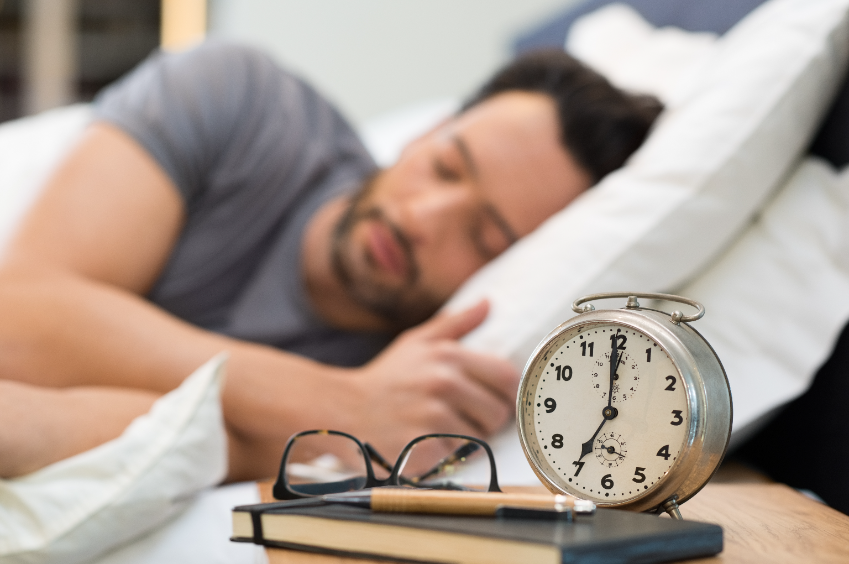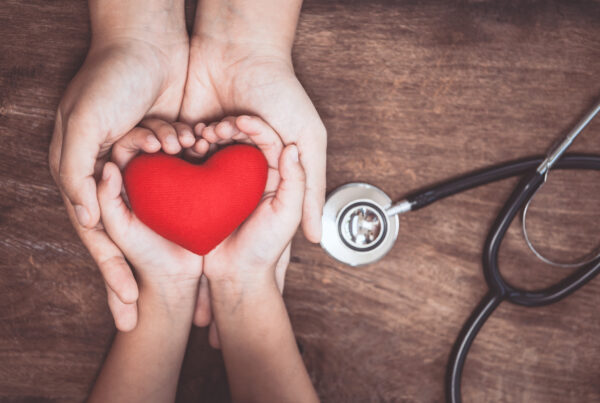”Question: It is health literacy month and I was hoping to read a lot of new information on sleeping. What is so important about sleep?
Reading Time: 6 Minutes
MWi Hack:
- Learn all about sleep: why it’s important to our health, what happens when we sleep, and how you can improve your own sleep.
MWi Summary:
- Sleep accomplishes many restorative activities: consolidate memories, restore hormonal balance, and clearing metabolic waste.
- Sleep can be a powerful tool to treat mental health conditions.
- Good sleep means you are getting enough sleep, your schedule is consistent, and your sleep is restorative.
- Some sleep hygiene tips include avoiding stimulants close to bed, regular exercise, and choosing relaxing activities before bed such as reading.
Sleep is an elusive, enigmatic activity. According to award-winning author Bill Bryson’s The Body, no one knows exactly why we sleep — to consolidate memories, reset the immune system, restore hormonal balance, or clear metabolic waste and neurotoxins. While all of these processes do happen while we sleep, science still cannot say for certain why we need it so. One thing we do know is that sleep is vital to every living creature.
In humans, you would be hard-pressed to find any part of the body that does not suffer from the absence of sleep or benefit from the correct amount of it. Established advantages of good sleep include reduced stress, better immune function, lower blood pressure, and better mood. But sleep is perhaps most important for the normal functioning of our brains and is highly correlated to mental, as well as physical, health.
It is reported that a person with inadequate sleep is ten times more likely to experience symptoms of depression and 17 times more likely to experience symptoms of anxiety. A growing body of research suggests poor sleep raises the risk for suicidal behavior, independent of any other mental health problems. A review paper on sleep in college students from Dr. Roxanne Prichard of the Center for College Sleep reveals effects in many functional areas, including evidence from one study that sleep variability was a better predictor of suicidal ideation than depressive symptoms. Another study of nonfatal suicide attempts found that 92% of adult survivors reported difficulties with insomnia, and 89% reported sleep disturbances. And doctors treating patients in menopause highlight the need for greater attention to sleep in reducing suicide among women in the highest risk age group of 45-64.
Despite this, sleep intervention is not often thought of as the first line of defense against mental health conditions, whether they are chronic or episodic. This may be partly due to the fact that physicians get only a few hours of sleep education during medical school (and not enough sleep themselves). Yet studies have found that if a patient presents with both insomnia and anxiety or insomnia and depression, and just the insomnia is treated, the anxiety and the depression will get better. Sleep is an essential biological function, and with treatment approaches available, a potentially modifiable way to address mental health conditions and reduce suicidal behavior.
Why good sleep matters
Poor sleep affects mental health by disrupting our circadian rhythms and interfering with our normal sleep stages, thereby throwing our bodies and our brains off kilter. A sleep-deficient brain has a decreased ability to make emotional judgments and to incorporate multiple pieces of information into a decision. Studies show that merely being awake at night confers increased risk, and one paper suggests that whatever the cause, being awake when our bodies are not biologically prepared to be awake impedes the brain’s frontal lobe function and impairs reason and decision-making.
The diminished problem-solving skills and increased impulsivity of a sleep-deprived brain are also characteristics associated with suicidal behaviors. When we are tired, we also react more emotionally, tend to think negatively about ourselves, and are more vulnerable to stress. We are less able to use good judgment and coping skills, less physically and mentally resilient, and we are agitated, restless, and fatigued. These consequences of sleep deprivation happen regardless of any other underlying mental health conditions, which makes the knowledge of these vulnerabilities important to every one of us; the CDC reports that more than half of people who die by suicide do not have a known mental health condition.
Poor sleep and mental health concerns are bi-directionally related; it is evident that improving or worsening of either one can affect the other. For those with depression, commonly co-occurring insomnia and nightmares significantly raise the risk for suicide.
Having a mental health condition such as depression or anxiety makes it more difficult to deal with the consequences of being awake at night and may contribute to difficulties with falling asleep and staying that way. Stress, whether chronic or in response to a distressing life event, can disrupt sleep and the mental clarity it fosters. What’s more, poor sleep can manifest as symptoms of depression and anxiety because when you’re not sleeping, you feel more anxious and physically uncomfortable as stress hormones and altered neuroendocrine responses affect cognition and mood. Furthermore, sleep loss is associated with increased pain response, and both physical and mental pain are highly correlated with suicidal behaviors.
Sleep also sets the biological clock for our body’s immune system, detoxification, cell repair, and more. As research increasingly shows complex relationships between physical and mental health concerns, it is possible that sleep has numerous compounding impacts as a mediator of many systems. One surprising system that may have a large (bi-directional) effect on sleep quality is our gut microbiome. Studies have shown that the bacteria in our gastrointestinal tract communicate with our neural, endocrine, and immune systems through our central nervous system, affecting neurotransmitters, hormones, and immune system modulators. The type and amount of sleep we are getting may affect, or be affected by, our gut microbiome, as a study found that a diverse gut microbiome correlates to healthier sleep and increased cognitive flexibility and that certain organisms in our microbiome modulate circadian rhythm and food intake.
What is good sleep?
Let’s talk about what good sleep means. According to Dr. Prichard, there are three foundations of good sleep. First, sleep should be sufficient, and needs vary by age. As a college student, that means 7-9 hours of sleep a night, and ideally, you do not need an alarm clock to wake up. Second, sleep should be consistent, so the time you wake up and the time you go to bed should not vary by more than an hour day to day. Third, sleep should be restorative. You should get high-quality sleep that makes you feel rested upon awakening.
It is important to note that too much sleep can also be problematic. One study found that less than 5 hours but also more than 9 hours a night in adults is associated with increases in psychiatric and substance use disorders as well as suicide attempts.
When we sleep 7-9 hours a night on a regular schedule, our bodies cycle through four sleep stages, four to five times each night. The first stage is categorized by the business of actually falling asleep, which takes from eight to twenty minutes. Our sleep in this first stage is shallow, and we can be easily awakened by external stimuli. In the second stage, lasting about twenty minutes, we fall into a light, restorative slumber not unlike a nap. Sleep in the third stage is deeper, and awakenings or arousals are rare. This stage lasts about an hour until we enter the fourth stage, or the rapid eye movement (REM) stage, which is a lighter stage of sleep characterized by dreaming. It is normal for us to awaken a few times a night, and sleep can still be sufficient if those periods are short. If our sleep is restricted in length or fragmented in schedule, our bodies do not benefit from the four to five cycles through the sleep stages.
These stages, as well as when we feel sleepy or when we awaken each day, are governed by our circadian rhythms and habits and vary by person. Circadian rhythms are regulated by genes, as well as by the amount of light that our brains detect. Nerve cells in our retinas act as brightness detectors (even in blind people!), and the light detected by these cells tells our brain when to secrete melatonin, which makes us feel tired. Our circadian rhythm is a 24 hour clock that cycles between sleepiness and alertness to guide our sleep cycle and to regulate many bodily functions, hormone release, and the activities of our organs.
How to get good sleep
The obvious question is, how do we get good sleep? Many of the sleep interventions suggested by experts revolve around good behavioral habits, also known as sleep hygiene.
According to Dr. Prichard and the American Academy of Sleep Medicine, the first step to getting a good night of sleep is to wake up around the same time every day, even on the weekends. If you wake up at 7 AM on weekdays but sleep in until 10 AM on Saturday and Sunday, you’re essentially experiencing three hours of jet lag every weekend. Your circadian rhythm can’t keep up with that kind of change and keep your body functioning in a normal and healthy way.
Another good tip: avoid stimulants such as caffeine, including foods and medications, for at least three hours before bedtime. Caffeine can last in your system for six to eight hours (even longer if you are pregnant, post-partum or your liver is impaired) and delays your natural sleep cycle by counteracting how drowsy you feel. That matters, as experts suggest that you should only go to bed when you feel sleepy because there is a higher probability that you will fall asleep quickly. Caffeine misuse and sleep disruption can become a challenging interactive problem.
Experts also advise avoiding eating too close to bedtime, as digestion slows down during sleep, and undigested food can cause indigestion. Diet matters, alcohol affects sleep duration, and certain foods can be sleep-promoting!
There is also evidence that a good workout, as little as ten minutes of exercise done regularly, can dramatically improve the quality of your sleep and help stave off the development of sleep disorders such as sleep apnea and restless leg syndrome.
Dr. Prichard recommends creating a relaxing atmosphere, which includes keeping your bedroom dark, cool, and quiet. She suggests sticking to a consistent bedtime routine that incorporates calming activities like light reading or meditation and staying away from screens. Most screens emit blue light, which mimics sunlight, confusing our brightness detectors and interfering with melatonin production. Reconsider an alarm clock with a lighted time display, as seeing this can create unneeded anxiety about the sleep you may be missing out on.
By practicing good sleep hygiene, we can often actively change our behavior to optimize a full and restful night’s sleep. That’s the greatest thing about sleep—it’s a behavior you can often modify of your own volition, without the need for anything other than your own dedication to a routine.
Sleep Medicine
However, sometimes we need extra support for sleep issues, and there are more options that may be addressed by a doctor or an expert in the sleep medicine field. Treatment of restless leg syndrome, apnea, and breathing problems can improve sleep quality and mental health. Reviewing with your doctor the sleep-disrupting effects of other medications might be helpful. For severe problems, such as insomnia and nightmares, especially in relation to suicidal thoughts and behavior, cognitive behavioral therapy (CBT) is generally recommended. CBT includes strategies for managing sleep-depriving thoughts before bed and calming an active mind. Medicines and over-the-counter pills to promote sleep should be used with medical guidance and care. Some sleep experts suggest short-term use to help establish good habits, as certain medications come with associated suicide warnings and risks for specific individuals.
It’s good to know that getting a good night’s sleep is attainable. And whether you are a college student, a parent, a professional, or a patient, it is important to consider the role of effective sleep in optimizing mental and physical health for you and those in your care.
MWi would like to thank Alison Brown, MSc for her expert insights that we were able to share with our community. Click the button below to read the original article:






